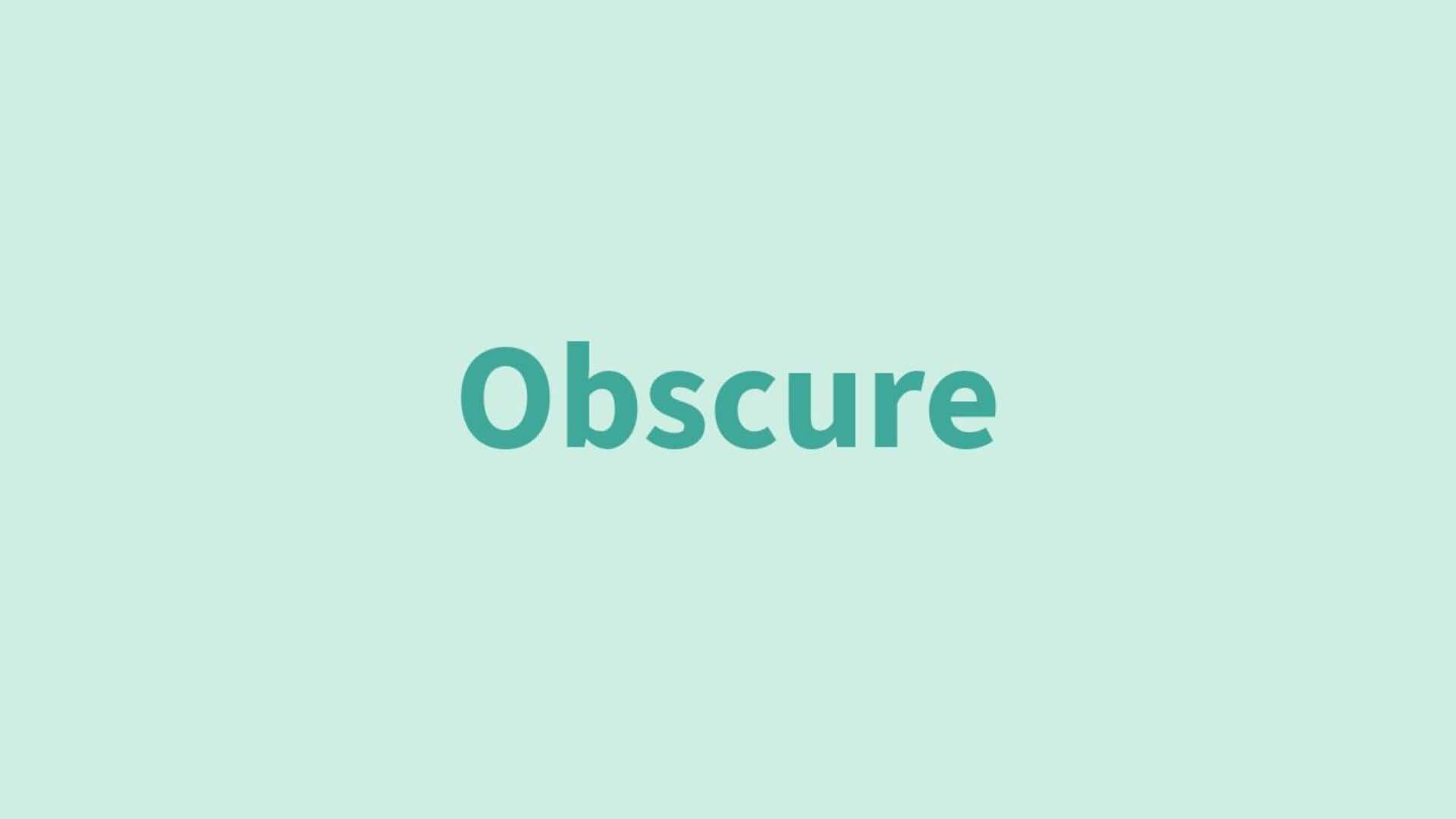
Word of the Day: Obscure
What's the story
The word "obscure" can function as both an adjective and a verb. As an adjective, it means something unclear, hidden, or difficult to understand. As a verb, it refers to making something less visible or harder to comprehend. Whether describing a poorly lit alley, a vague explanation, or a hidden historical fact, "obscure" conveys a sense of mystery or lack of clarity.
Origin
Origin of the word
The word "obscure" comes from the Latin obscurus, meaning "dark" or "hidden." It was later adopted into Old French as obscur, before entering Middle English in the 14th century. Initially used to describe physical darkness, its meaning expanded over time to include abstract concepts, such as uncertainty or complexity.
Synonyms
Synonyms for 'obscure'
Several words share a similar meaning with "obscure." Common synonyms include "unclear," "vague," "ambiguous," "hidden," and "mysterious." While some of these words focus on lack of clarity, others highlight concealment or difficulty in understanding. Choosing the right synonym depends on the context in which "obscure" is used.
Usage
Sentence usage
Here are some examples of how "obscure" can be used in a sentence: "The meaning of the ancient text remained 'obscure' despite years of research." "Thick fog 'obscured' the view of the mountains." "The professor's explanation was so 'obscure' that the students struggled to follow it." "Many historical figures remain 'obscure' despite their significant contributions."
Depth
Why use the word
Using "obscure" adds depth and nuance to descriptions, whether you're talking about hidden truths, unclear concepts, or darkened environments. It's a useful word for writers, speakers, and thinkers who want to express complexity, mystery, or ambiguity in a concise yet impactful way.